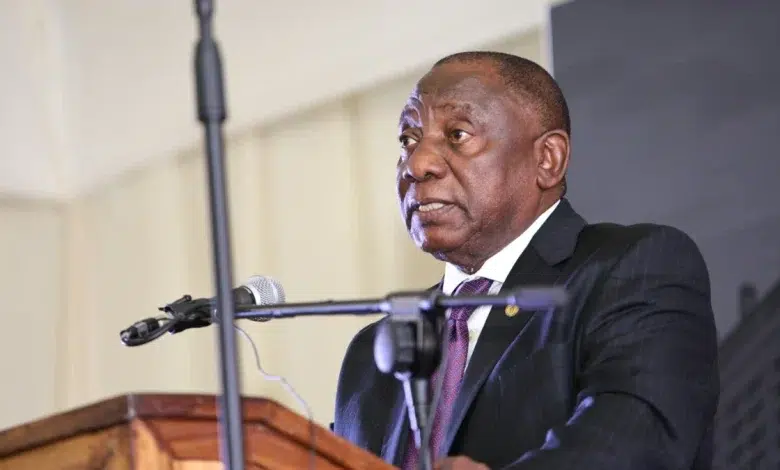30th Anniversary Celebrations of South Africa’s Constitutional Court

This year marks a momentous milestone as South Africa’s Constitutional Court celebrates its 30th anniversary. Established in 1995, the Court has stood as a beacon of democracy, justice, and transformation for three decades. The celebrations, held at the Constitutional Court building in Braamfontein, brought together distinguished guests, including President Cyril Ramaphosa, former presidents, chief justices from across Africa and beyond, and members of the legal fraternity.

RELEVANT ARTICLE: President Cyril Ramaphosa’s Remarks at the 30th Anniversary of South Africa’s Constitutional Court
A Symbol of Freedom and Justice
The Constitutional Court was born out of South Africa’s transition from apartheid to democracy. It was established on the site of the Old Fort prison, a powerful symbol of past oppression, now transformed into a temple of justice and hope. This location embodies the Court’s mission: to uphold the Constitution and protect the rights of all South Africans.
President Ramaphosa reflected on the Court’s origins, describing it as a “noble symbol of our democratic order” and “an immortal legal compass” guiding the nation. The Court’s foundation coincided with the adoption of the 1996 Constitution, South Africa’s “birth certificate” that guarantees human dignity, equality, and freedom.
A Legacy of Landmark Judgments
Over 30 years, the Constitutional Court has delivered progressive and transformative judgments that have reshaped South African society. Its rulings have abolished the death penalty, enshrined the right to housing, and ensured access to healthcare, including HIV/AIDS treatment. The Court has advanced the rights of marginalized groups, including women, children, same-sex couples, and the disabled, reinforcing that dignity and equality belong to all.
Notable cases such as S v Makwanyane, Grootboom, and Minister of Health v Treatment Action Campaign highlight the Court’s role in promoting social justice and human rights. These decisions extend beyond legal rulings; they have changed lives and strengthened democracy.
A Court Rooted in African and Global Constitutionalism
The Constitution and the Court’s jurisprudence draw from a rich blend of global and African influences. The drafters incorporated ideas from countries like Canada, Germany, India, and the United States, adapting them to South Africa’s unique context. The Court’s work also reflects the African Claims of 1943 and the Freedom Charter of 1955, embedding the aspirations of the liberation struggle into constitutional law.
This blend of international and local principles has allowed the Court to develop a uniquely South African constitutional culture that champions human rights and social cohesion.
ALSO READ: President Ramaphosa Meets Judiciary to Strengthen South Africa’s Justice System
Challenges and Commitment to the Future
Despite its successes, the Court faces ongoing challenges. Persistent inequality, threats to judicial independence, and gaps in implementing court orders remain pressing issues. The Court’s workload has increased since its appellate jurisdiction expanded in 2013, requiring enhanced resources and support.
President Ramaphosa reaffirmed the government’s commitment to strengthening judicial independence and improving court services. He emphasised that the judiciary must be supported institutionally and financially to uphold its vital role as an equal branch of government.
Celebrating a Pillar of Democracy
The 30th anniversary is not only a celebration but a call to recommit to constitutionalism. The Court’s legacy is one of courage, conscience, and unwavering dedication to justice. Its judges, past and present, have upheld the rule of law with integrity and moral courage, even amid political pressures.
The Court building itself, with its symbolic architecture and artwork, stands as a testament to South Africa’s democratic values. It reminds all who enter that the Constitution lives and breathes in the daily work of justice.
Looking Ahead
As South Africa faces challenges such as poverty, inequality, and unemployment, the Constitutional Court remains a guiding light. It embodies the values of ubuntu, accountability, and human dignity. The next 30 years will demand continued vigilance, principled jurisprudence, and collective commitment to the Constitution’s promises.
The Court’s role as guardian of the Constitution ensures that no person or institution is above the law. Its enduring presence offers hope and stability for South Africa’s democratic journey.




